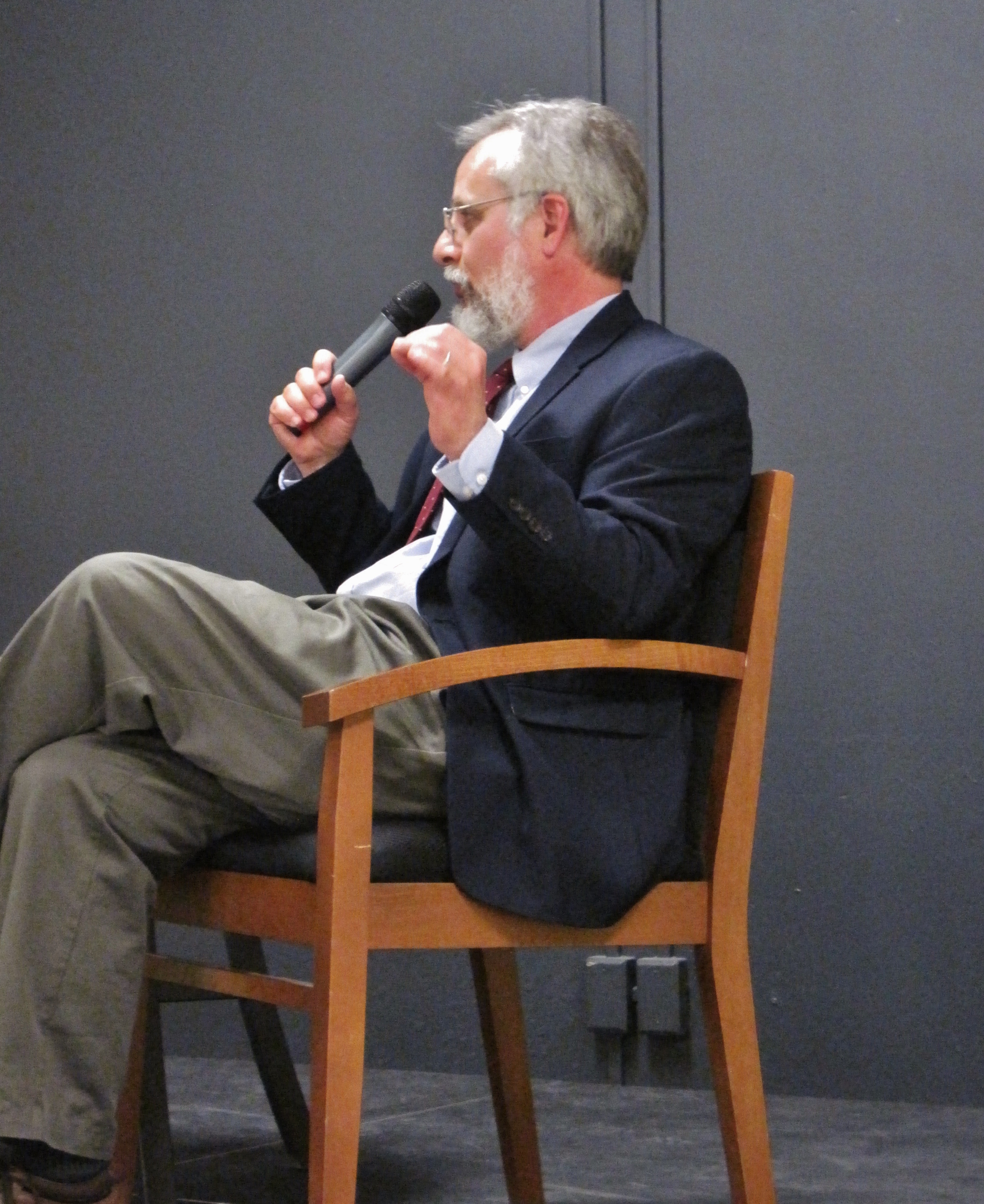Presidential Scholar Dr. Benjamin Wiker Talks Secularism, Teleological Evolution
Empire State Building, NEW YORK– This week's Presidential Scholar is philosopher and writer Dr. Benjamin Wiker, who will deliver a series of lectures on secularism and the separation of church and state. He discussed morality, evolution and secularism at a lunchtime Q&A with President D'Souza Tuesday, April 17.

The focus question of the Q&A was, "What does is have to do with ought?" In other words, what does the nature of things– of humans and of the universe in general– have to do with the way people should behave?
Wiker largely rejects any real distinction between "is" and "ought." According to him, "teleology," which refers to the inherent purposefulness found in nature, provides a view of nature that demonstrates how one ought to behave. For instance, one purpose of man's social nature appears to be forming friendships and community, therefore it is reasonable that man should have friends and live within a community.
This logic only holds as long as the teleological component of nature is upheld. "Once you have non-teleological materialism, you can no longer appeal to human rationality to point you to morality," Wiker said.
Within secular modern society, however, Wiker stresses the need for a new kind of teleology, as opposed to the ancient kind of teleology sourced in Aristotle's thought. In his book Meaningful World, Wiker explains this new teleology, which is "based on science and speaks to current culture."
This new teleology is apparent in Wiker's beliefs about evolution. When President D'Souza asked whether Wiker agrees with the theory of evolution, Wiker replied, "Both, yes, no." He disagrees with the atheistic, materialistic beliefs associated with Darwinian evolution. On the other hand, he supports a theistic view of evolution based on the belief that God created the world to evolve until it fulfilled its ultimate purpose: to sustain human life and provide for its flourishing.
Wiker believes some Christians reject evolution because secular thinkers have linked it so closely to Darwinian materialism. “Why is there a battle drawn?" he asked. "Because both sides understand evolution to be identical to Darwinism. As soon as you introduce the notion of fine-tuning to the theory of evolution, the conversation becomes anathema in the secular public square.”
Wiker also thinks the secularization of the public square contradicts the attempt to find neutrality in a religiously diverse society. He argues that the voice of secular reason should not be considered a default position. Rather, he suggests that "secularism should compete with everything else. Let it define its position and stop pretending it’s neutral.”
He concludes that the purposefulness inherent in nature surpasses human reason in its provision of moral direction. "The world is wisely ordained toward the emergence of these divinely complex things, like the eye," he said. "What you’re talking about is the evolution of vision— the eye evolves for the purpose seeing something ... how shocking, I know, but it's like the eye wants it to happen.” According to Wiker, the purpose for which the world was originally created and directed to evolve connects the "is" of nature to the "ought."
Wiker's lecture schedule is as follows:
- What Does “Establishing the Secular Church” Mean? on Wed., April 18 at 10:30 am
- The Very Curious Case That Didn’t Begin It All: Everson v Board of Education (1947) on Wed., April 18 at 12 pm
- How the Church Created the Distinction between the Church and the “State" on Wed., April 18 at 1:30 pm
- The Invention of the Secular State via the Separation of the Church on Thurs., April 19 at 10:30 am
- Is the Teaching of History Possible with the Separation of Church and State? on Thurs., April 19 at 12 pm

